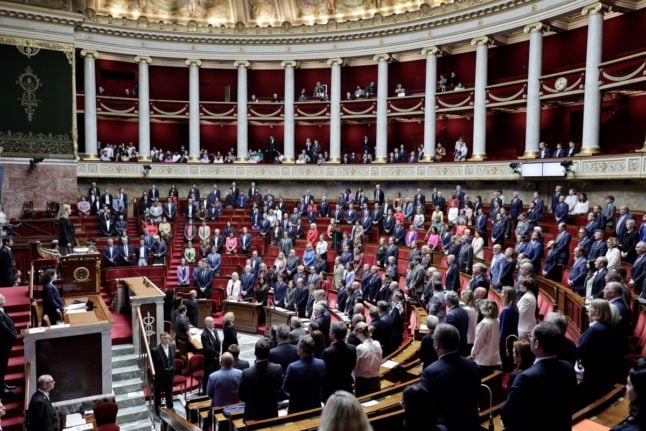Marlene Schiappa, a 40-year-old feminist author who was plucked from obscurity by President Emmanuel Macron in 2017, is no stranger to controversy and has repeatedly angered rightwingers.
But even the prime minister and leftwing critics feel the minister for the social economy and associations has made a mistake with her latest stunt: posing for Playboy to accompany a 12-page interview on women’s and gay rights as well as abortion.
“Defending the right of women to do what they want with their bodies: everywhere and all the time,” Schiappa wrote on Twitter on Saturday. “In France, women are free. Whether it annoys the retrogrades and hypocrites or not.”
The decision has irritated some colleagues in the government which has been battling strikes and increasingly violent demonstrations against plans to raise the retirement age by two years.
The sight of Schiappa wearing designer dresses for a glamour magazine was viewed by some as sending the wrong message, with one person quoted as saying they thought it was an April’s Fool joke when they first heard about it.
Prime Minister Elisabeth Borne, only the second woman to occupy the position, called Schiappa to tell her that it “was not at all appropriate, especially in the current period,” an aide told AFP on Saturday.
Greens MP and fellow women’s rights activist Sandrine Rousseau, an outspoken critic of the centrist government, said: “where is the respect for the French people?
“People who are going to have to work for two years more, who are demonstrating, who are losing days of salary, who aren’t managing to eat because of inflation?” she told the BFM channel on Saturday.
“Women’s bodies should be able to be exposed anywhere, I don’t have a problem with that, but there’s a social context.”
‘Not soft porn’
Playboy has defended the spread which will appear in its French-language edition.
Schiappa was the “most ‘Playboy compatible'” of government ministers “because she is attached to the rights of women and she has understood that it’s not a magazine for old machos but could be an instrument for the feminist cause,” editor Jean-Christophe Florentin told AFP.
“Playboy is not a soft porn magazine but a 300-page quarterly ‘mook’ (a mix of a book and a magazine) that is intellectual and on trend,” Florentin added, while admitting there were “still a few undressed women but they’re not the majority of the pages.”
Other criticism of Schiappa has focused on the broader issue of the centrist government’s communication strategy.
Macron, who rarely gives interviews to the French press, offered his thoughts on political power and pensions in a long interview published in children’s magazine “Pif, le mag” last week.
Schiappa, a regular on French TV talk shows, brought in legislation outlawing catcalling and street harassment while serving as equalities minister in 2018.
The mother-of-two was a prolific author and blogger before her career in politics, writing about the challenges of motherhood, women’s health and pregnancy.
She also penned a 2010 book that offered sex tips for the overweight which some critics saw as propagating stereotypes.



 Please whitelist us to continue reading.
Please whitelist us to continue reading.
Member comments